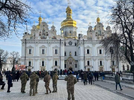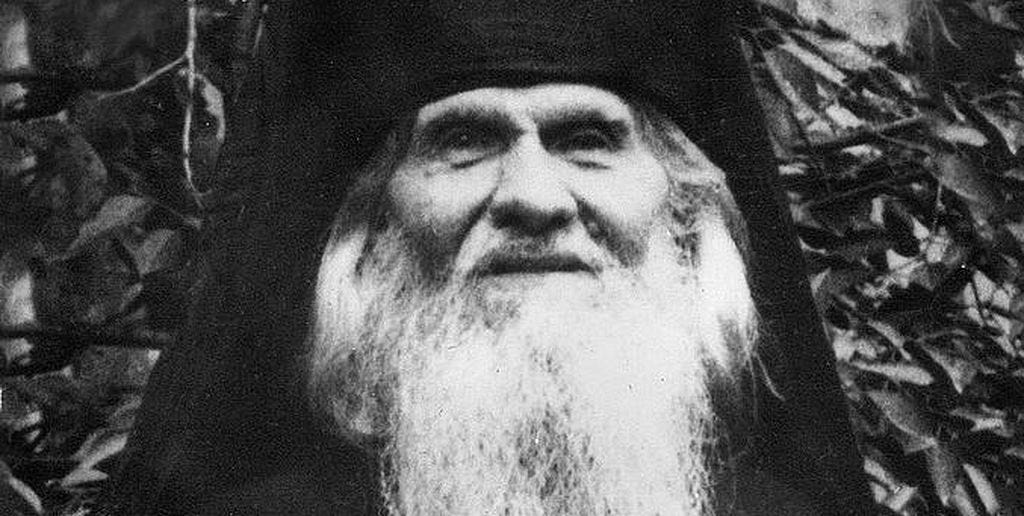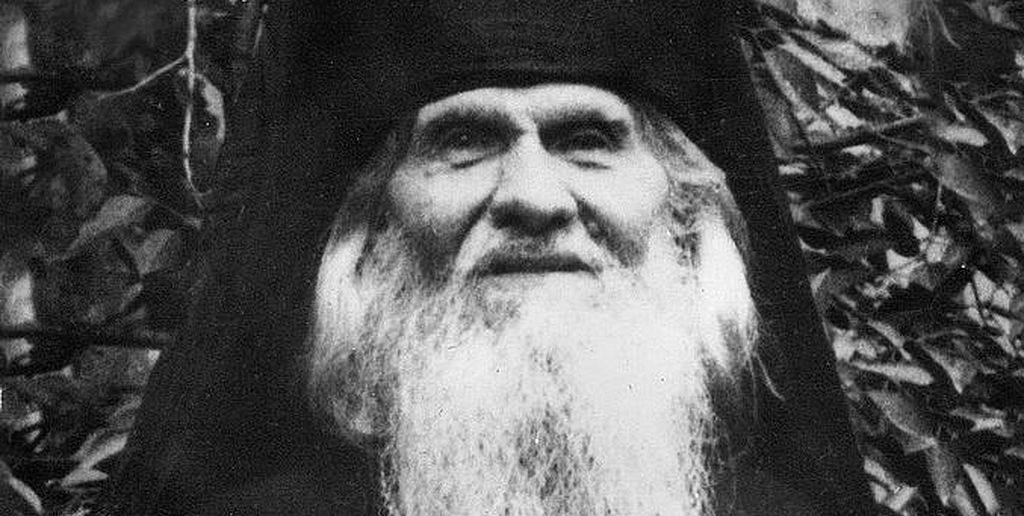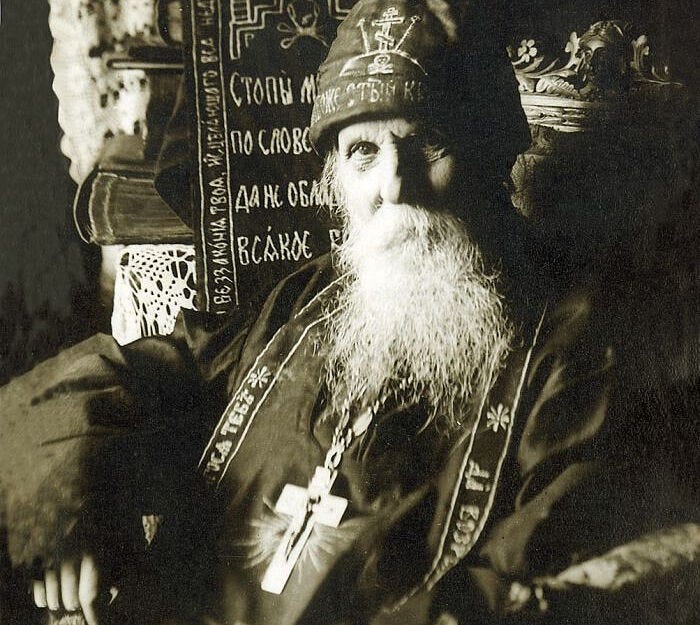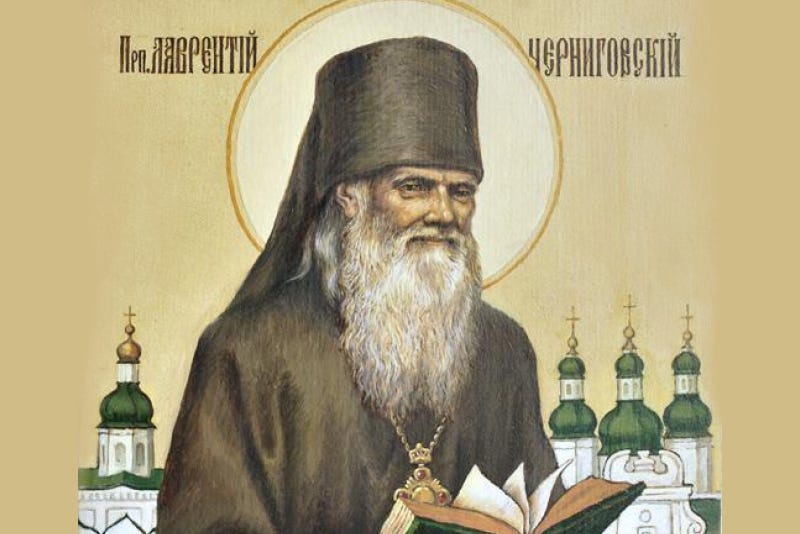Listening to Putin's speeches and going through this thread ignited quite the curiosity in me to gain a more comprehensive understanding of his deontology that's obviously shaped, at least somewhat, by his religious convictions. Knowing that he is of the Orthodox faith, I decided to try and view his struggle against Satanism and globalization through the Russian Orthodox lens.
In my search, I came across this book written by G.M. Davis, titled 'Antichrist: The Fulfillment of Globalization: The Ancient Church and the End of History'. I bought it and just now finished reading it. Few things I wanted to note:
First and foremost, I'm not going to do a full-fledged book review here. But before I get to the meat, I want to knock out some of the potatoes and comment on a few things about the author. Mr. Davis is obviously of the Orthodox faith, so by standard, he has a particularly dogmatic perspective. He is also heavily influenced by Eric Voegelin, thus his conclusion to everything "Anti-Christian" can be traced back to Gnosticism. I believe most of us here would be able to separate the wheat from the chaff, but if anyone decided to read this book, I'd highly recommend reading Arthur Versluis' 'The New Inquisitions: Heretic-Hunting and the Intellectual Origins of Modern Totalitarianism' along side this one, as Versluis does a wonderful job of correcting any misunderstandings created by Voegelin's rhetoric of anti-gnosticism. (OSIT.) Even on pages 132 & 136, Davis writes the following:
So those are pretty revealing statements. But nonetheless, Davis still offers some valuable insights into the historical, political, economic, and theological background events that have unfolded that eventually took shape into what we are seeing transpire within the geopolitical and economic landscapes today, especially from the Orthodox viewpoint. Starting with the events surrounding the collapse of Rome, and also the inception/rise of Ancient Rus, he continues by delving into the events that led to the Great Schism between the Holy Roman Empire and Constantinople. He plainly narrates how these two very different forms of Christendom transgressed into total opposition to one another. On page 191, he writes:
It has always been the West vs. Russia. And until the martyrdom of the Russian Imperial family and the following usurpation of Russia via the Bolsheviks/Communists, Russia had always been the torchbearer for Christian nations. It has only now begun to retake that claim under Putin.
Putin's awareness of history and his religious convictions aid him in working overtime to continue to grow a strong, independent, Orthodox Russia. This is what makes Russia such a robust challenger on the world stage against globalization, particularly in this Time of Transition. Putin is leading Russia as the power center of resistance against "Satan". And although this is already well known to most of us here, it is still such an amazing and miraculous thing to see revealed by taking a stroll through history to appreciate it for what it is today.
Further in Davis' book, he goes on to reveal "The Future of Russia, and The End of the World", and a lot of the points he makes indeed suggest that Russia is the "hope for the world" as Cayce had put it. He highlights the emergence of a renewed spiritual renaissance flowering within Russia, which had been forseen by many of Russia's historical holy figures.
For example, Archbishop Theophan prophesied in the 1930's:
Davis goes on to remind us that after the nightmare stronghold of atheist Communism came to it's end with the fall of the Soviet Union, and after the Western-dominated chaos and destitution that followed in the 1990's was halted when Putin came to power, Russia began to slowly but surely revive Orthodoxy's power and influence within the country, both quantitatively and qualitatively. According to this article:
The Russian Church increased by 5,000 churches and 10,000 clerics over the last six years
And the examples could go on and on.
Putin is hard at work combating the forces of Entropy. Indeed, when putting everything into perspective, it's actually quite astounding to see what he has been able to accomplish. Faith, combined with Knowledge, has served him well. And I hope that it continues to serve him until his purpose in this life has been fulfilled. Because, God knows, his service has been a service to us all.
After reading this, I inadvertently came across this article talking about this man:
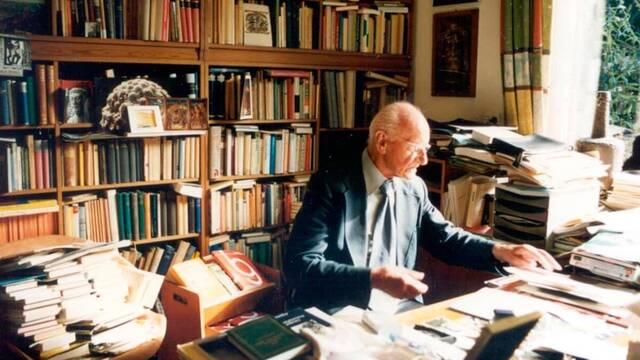
Josef Pieper vislumbró el reino del Anticristo: «Un pseudo-orden donde el engaño tiene éxito»
El filósofo alemán, admirado por Benedicto XVI, lo describió como "un pseudo-orden donde el engaño tiene éxito".
Josef Pieper envisioned the kingdom of the Antichrist: "A pseudo-order where deception succeeds".
Twenty-five years have passed since the death of Josef Pieper (1904-1997), one of the great Catholic philosophers of the 20th century, much admired by Benedict XVI and author of numerous works translated into Spanish. Luisella Scrosati has remembered him in the Italian Catholic monthly of apologetics Il Timone (no. 223, December 2022)
Josef Pieper: Leisure is for higher spirits
On November 6, 1997 Josef Pieper, professor at the University of Münster for almost fifty years, an extraordinary interpreter of the thought of Thomas Aquinas and Plato, died at his home in Münster at the age of 93.
The beauty of Pieper's thought is reflected in his writing, which shows a clear, sharp and lofty intelligence; his works communicate the loftiness and harmony between intellect, reason and word: his extraordinary ability to read reality, his solid and fluent argumentation and his clear and meaningful communication were and are a rarity.
At the inauguration of the Josef Pieper Arbeitsstelle in 2008, Benedict XVI highlighted the fact that Pieper "knew how to formulate questions and answers without the rigidity of a necessarily erudite language, but with a beautiful and comprehensible language". His works are clear and significantly concise, never overloaded with quotations and even less with linguistic and mental contortions: characteristics that not infrequently earned him the criticism of being a popularizer of philosophy and not a true philosopher.
Again it was Benedict XVI who showed that these unjust criticisms came to him for a much more fundamental reason: Pieper "had no interest in practicing philosophy in a strictly 'scientific' way, in the sense of the current university discipline," because he wanted it to be free of that "kind of anesthesia toward the question of truth," of a restriction of vision that then leads, in practice, to the exclusion "of the question of truth."
Academic scientificity is deliberately sacrificed in favor of a discourse that is authentically allietic, that is to say, open to the whole dimension of truth. For this reason, Pieper never disdained the contribution of Revelation, never excluded it a priori just to escape the accusation of partisan confessionalism. Revelation opens to truth; therefore, it reaches by its own right to philosophy which, being the love of wisdom, embraces it wherever it finds it.
The return of the virtues
In this unscientific perspective, but far from being anti-scientific, Pieper wants to put the virtues back at the center of reflection, not with a puritanical morality in mind, but with the awareness that authentic virtue is closely related to good, evil and the creatural condition of man. The disappearance of these foundations from the human horizon is what has caused the decomposition of the virtues.
The four small volumes on the cardinal virtues, not only re-propose this classic theme, but attempt to free the virtues from a tragic utilitarian and relativistic distortion that never seems to recede.
In the common ideology, the prudent person is, in fact, the "'tactical expert' who sidesteps the involvement of the person." Once again, prudence "is invoked by one who seeks always to avoid the moment of danger". In short, the prudent person is a bit shrewd, a bit fearful, a bit unjust, substantially inclined towards "a rather blatant utilitarian ethic" (Prudence): prudence has ended up radically detaching itself from the good and clinging to the useful.
Fortress, on the contrary, suffers because the perception of evil is disappearing. There is no longer a "no" to firmly oppose the evil one, sin, Babylon: "In the liberal conception of the world," Pieper explains, "the disturbing, implacable and unshakable 'No,' which is for the Christian a self-evident reality, is deactivated. Man's ethical life is distorted into a tranquility without risk or heroism; the path to perfection appears as an almost vegetable 'expansion' and a 'development' that achieves the good without struggle" (Fortitude). This type of "fortitude" is the ideal sister of utilitarian prudence: there is no opposition to evil, no "disposition to assault" against evil, because there is no "arduous" good to defend and fight for.



